#tohoku
Explore tagged Tumblr posts
Text


Oirase, Aomori, Tōhoku, Japan by Mitsuo Mukao
1K notes
·
View notes
Text
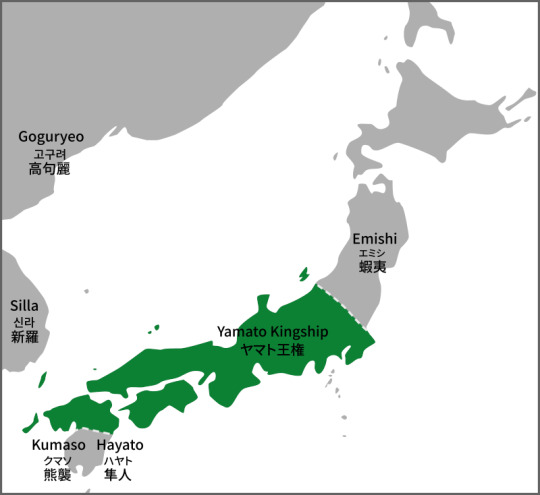
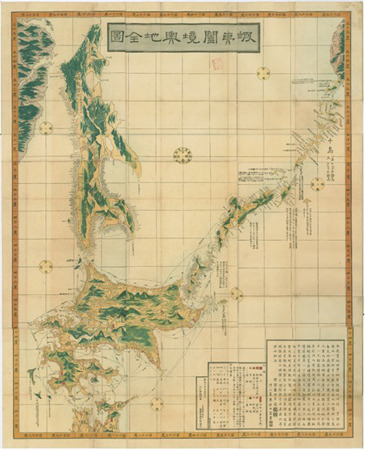
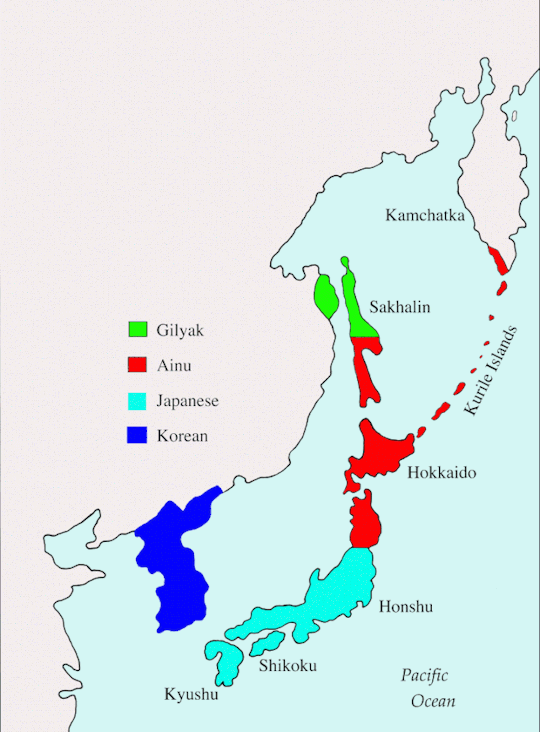
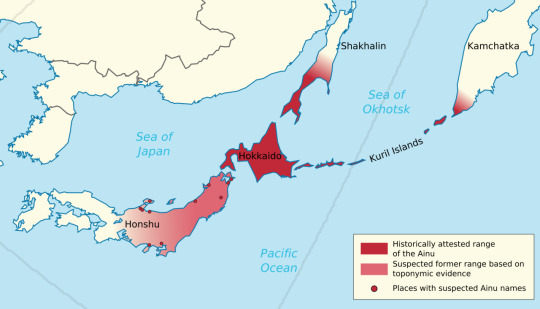
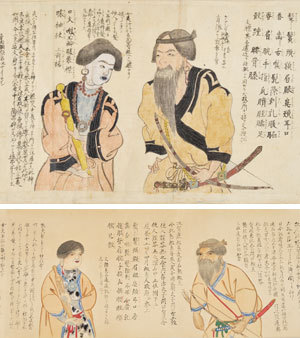
Capítulo 1: Introducción a los Emishi. Sean bienvenidos amantes del mundo japonés a una nueva publicación, en esta ocasión vamos a hablar sobre los emishi dicho esto pónganse cómodos que empezamos. - Para empezar, el término emishi hace referencia a todas las tribus y pueblos que vivían y que todavía viven al norte de Japón es decir la mitad norte de Tohoku, incluida hokkaido a este pueblo se le denominaba y se le denomina todavía a día de hoy Ainu, considerados los primeros pobladores del archipiélago a lo largo del siglo XVI hubo una serie de campañas militares para controlar dicho territorio aunque ya en el siglo VII siglo VIII después de Cristo durante el apogeo del clan yamato crearon una serie de fortalezas al norte para mantenerlos a raya. De hecho eran denominados bárbaros del norte que además se revelarán en más de una ocasión bajo el dominio japonés sin resultado alguno, actualmente se les da un reconocimiento a esta cultura, que en el pasado no lo tuvieron, como por ejemplo hay un museo dedicado a ellos y a su cultura. - Espero que os haya gustado y nos vemos en próximas publicaciones que pasen una buena semana. - 第 1 章: 蝦夷の紹介。 日本世界を愛する皆さん、新しい出版物にようこそ。今回は蝦夷について話します。とはいえ、気を楽にして始めましょう。 - まず、蝦夷という用語は、日本の北、つまり北海道を含む東北の北半分に住んでいた、そして今も住んでいるすべての部族と民族を指し、この民族は現在もアイヌと呼ばれていると考えられています。 16 世紀を通じてこの列島に最初に定住した人々は、その領土を支配するために一連の軍事作戦を行ったが、すでに 7 世紀から 8 世紀にはヤマト氏の全盛期に、彼らは北に一連の要塞を築き、領土を維持していた。湾。実際、彼らは北の野蛮人と呼ばれていましたが、日本の統治下でも何の成果も得られずに何度も姿を現しましたが、現在では、この文化は、例えば、そこでは過去にはなかった認識を与えられています。は彼らとその文化に特化した博物館です。 - 気に入っていただければ幸いです。今後の投稿でお会いしましょう。良い一週間をお過ごしください。 - Chapter 1: Introduction to the Emishi. Welcome lovers of the Japanese world to a new publication, this time we are going to talk about the emishi, that being said, make yourself comfortable and let's get started. - To begin with, the term Emishi refers to all the tribes and peoples who lived and still live in the north of Japan, that is, the northern half of Tohoku, including Hokkaido. This people was called and is still called Ainu today. , considered the first settlers of the archipelago throughout the 16th century there were a series of military campaigns to control said territory although already in the 7th century 8th century AD during the heyday of the Yamato clan they created a series of fortresses to the north to keep them at bay. stripe. In fact, they were called barbarians of the north who also revealed themselves on more than one occasion under Japanese rule without any result. Currently, this culture is given recognition, which in the past they did not have, such as, for example, there is a museum dedicated to them and their culture. - I hope you liked it and see you in future posts, have a good week.
#japan#culture#history#archaeology#photography#Ainu#Hokkaido#Emishi#heianperiod#NaraPeriod#unesco#anime#日本#文化#歴史#考古学#写真#アイヌ#北海道#蝦夷#平安時代#奈良時代#ユネスコ#アニメ#maps#地図#地理#geography#Tohoku#東北
60 notes
·
View notes
Text

Miyagi, Japan
#photo diary#original photographers#artists on tumblr#photography#photographers on tumblr#Natsoumi#山田なつみ#neige#Japon#Japan#Miyagi#Tohoku#snow mountain
13 notes
·
View notes
Text
On the Tohoku Roots of the Typhlosion Tale (Analyzing the Pokemon Leak, Part One)
Historical and cultural context for the recent Pokemon leaks
Yesterday, as I write this, I was tagged into some analysis of a Pokemon leak on Bluesky. I haven’t actively kept up with Pokemon since stadium was new. In the time since, I have earned a doctorate in Japanese history and regularly included study of Japanese rural folklore in my research. So what follows is my historian’s analysis of the stories in the leaked document, one at a time, adding…
#tohoku#japan#folklore#japanese history#iwate prefecture#pokemon#typhlosion#tono monogatari#kamikakushi
36 notes
·
View notes
Text

Tsukasa Netonai Tohoku Style JZX100 Mark II (2001)
162 notes
·
View notes
Text
CONTENT WARNING: BLADE









🎍🎤🎋 Tohoku Zunko (Vocaloid) stimboard with themes of food, green, and nature!
SHE. IS. SO. CUTE!!!!
How do you NOT love her??? Her voice is really good, she looks so pretty, and she is the vocal synth representative of an entire region of Japan ☆ I'm slowly falling in love with this lovely lady! /plat
Sources:
x | x | x
x | x | x
x | x | x
#stimblr#stimboard#visual stim#cw blade#cw knife#tohoku zunko#vocaloid#vocal synth#vsynth#tohoku#green#food#food stim#green stim#nature#nature stim#slime stim#orbeez stim#zunda mochi#leaf stim#plant stim#water stim
29 notes
·
View notes
Text

The Mii are a unique interpretation of the “toys to life” concept!😄
#history#mii#kokeshi#nintendo#dolls#japanese history#video games#tohoku#wii#edo period#video game history#wii sports#wii sports resort#miitopia#artworks#toy dolls#traditional practice#super smash bros#collectables#toy history#gamer girl#wooden dolls#mii fighter#video game inspiration#japan#miiverse#nintendo history#art#nickys facts
143 notes
·
View notes
Text
13 years on but never a day or year away from my mind.
Remembering this day
The people, their homeland
悼むことは、忘れないこと
どこにいても、忘れない
31 notes
·
View notes
Text
There are four major Japanese festivals in the Tohoku region. One of these is the Yamagata Hanagasa Festival (山形花笠まつり), which is held from 5th-7th August. It consists of a parade where people dance to a traditional Yamagata folk song known as Hanagasa Ondo (花笠音頭 - "flower hat song"). Although there is a traditional dance that accompanies the song (花笠踊り) that is performed with a straw hat decorated with flowers, the festival now consists of many groups performing creative and unique interpretations using a variety of props (although the flower straw hat remains a dominant feature).
I feel very lucky to have had the opportunity to go. Here's a snippet of one of my favourite parts! You can hear the dancers repeating the kakegoe (掛け声 - shout of encouragement to a set timing. An example in English would be "heave ho!") It goes:
は やっしょ まっかしょ!しゃん しゃん しゃん、それ!
Ha yassho makkasho! Shan shan shan, sore!
Originally, the song was sung by workers constructing the embankment in Obanazawa as they compacted dirt into it. Following its construction, a parade was held by the community where those involved wore the sedge hats (conical straw hats) dyed red using safflower (a crop of the region). These are the hats - the hanagasa - you can see used by the performers in the first part of the video.
Many of the performing groups replaced "shan shan shan" with the name of their group or the company they were representing (as you can hear from this group). As far as I know, the kakegoe doesn't have any meaning, however "sore!" can be translated as something like "just like that!" or "that's the way!" or even "yeah! let's go!" Some of the performing groups and a lot of the audience would just chant "sore!" rather than the whole kakegoe.
71 notes
·
View notes
Text


Tohoku Expressway
9 notes
·
View notes
Text
昨日と今日の旅
料理写真撮影のため
新庄と天童を2日続けて往復
#冬景色
#日常という名の旅
#山形
#新庄
#路傍にて
#ontheroad
#streetphotography
#cityscapes #crossroads #snow #winterscene #japan #tohoku #yamagata StreetPhotography





#streetphotography#旅#cityscapes#winterscape#ontheroad#japanscenery#japan#yamagata#tohoku#drivingphotography
3 notes
·
View notes
Text

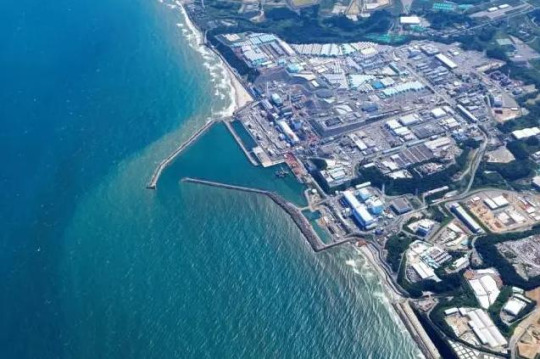
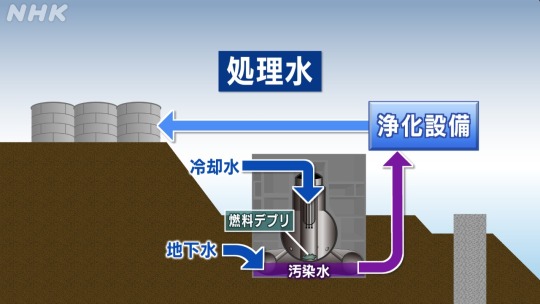

Sean bienvenidos, japonistasarqueologicos a una nueva entrega en la que hablaremos sobre el asunto de Japón y las aguas residuales al mar una vez dicho esto pongan cómodos que empezamos. - Hace poco están en todos los medios de comunicación del mundo, que Japón tiene luz verde por la ONU para verter agua tratada en la planta nuclear de Fukushima en el accidente acontecido en 2011. - Hay más de 1.000 tanques y 1,34 millones de toneladas, posiblemente al 98% de la capacidad, además se está analizando el agua de mar y los alrededores de la central nuclear, actualmente se está analizando la concentración de tritio, los resultados estarán disponibles el día 25 por la tarde, previamente se habían tomado muestras de agua de los depósitos dando como resultado que era seguro, pero posiblemente tendrían que haber esperado más tiempo. - La población japonesa, se manifiesta al respecto porque esto va a generar problemas a largo plazo a la economía mundial. China suspende todas las importaciones de productos del mar japoneses, no se iba a quedar de brazos cruzados ¿Qué opinan ustedes al respecto? - Espero que os haya gustado y nos vemos en próximas publicaciones que pasen una buena semana.
考古学の日本研究者の皆様、ようこそ!今回は、日本と海への汚水問題についてお話しします。
最近、日本が2011年の福島原発事故の処理水を海洋投棄することを国連から許可されたことが世界中のメディアを賑わせている。
タンクは1000基以上、134万トンあり、おそらく容量の98%であろう。また、海水と原発周辺は分析中で、現在はトリチウムの濃度が分析されており、25日の午後に結果が出る予定である。以前は貯水池から水を採取し、安全であるという結果を出していたが、おそらくもっと待つべきだったのだろう。
日本国民が抗議しているのは、これが世界経済に長期的な問題を引き��こすからである。中国が日本産水産物の輸入を全面的に停止したのだから、黙って見過ごすわけがない。 これについてどう思う?
お気に召していただけたなら幸いである。 それではまた、良い一週間を。
Welcome, japonistasarqueologicos to a new installment in which we will talk about the issue of Japan and sewage into the sea, that said, make yourselves comfortable and let's get started. - It has recently been all over the world's media that Japan has been given the green light by the UN to dump treated water into the Fukushima nuclear power plant from the 2011 accident. - There are more than 1,000 tanks and 1.34 million tons, possibly at 98% of capacity, also the sea water and the surroundings of the nuclear plant are being analysed, currently the concentration of tritium is being analysed, the results will be available on the 25th in the afternoon, previously water samples had been taken from the reservoirs giving as a result that it was safe, but possibly they should have waited longer. - The Japanese people are protesting because this is going to create long-term problems for the world economy. China suspends all imports of Japanese seafood, they are not going to sit back and do nothing. What do you think about this? - I hope you liked it and I'll see you in future posts. Have a good week.
#日本#歴史#地理#福島県#東北地方#本州#国連#ユネスコ#環境#放射能#Japan#History#Geography#Fukushima#Tohoku#Honshu#UN#UNESCO#Environment#Radiation
34 notes
·
View notes
Text

Kashima Shrine Pavillion, Watari, Miyagi (Northern Japan)
#Shintoism#Japan#Miyagi#original photographers#artists on tumblr#photography#photographers on tumblr#Japanese photographer#Natsoumi#写真家#山田なつみ#tohoku
13 notes
·
View notes
Text

(A print of the 1868 Battle of Ueno [source])
Okay, so this is a ways off, but what follows is an attempt to briefly outline for your enjoyment and edification what a hypothetical book by me on the Boshin War would look like.
First, it would follow Ishii Takashi's view that this was not one war, but three in one.
One side, the nascent Kyoto government, was consistent throughout. The other was not.
So we have the war from Kyoto to Edo against the former Shogunate, the war in Tohoku against the Northern Alliance, and the war in Ezo against the so-called Republic
Ōyama Kashiwa, whom I mentioned earlier, calls it "the Boshin campaign," which I think also has some utility.
I would also very sharply distinguish between the combatants fighting the Kyoto government. the Northern Alliance was not "pro-shogun," though it was allied with the former Shogunate's army
this is because of a thousand years of precedent of regional semi-autonomy. I wrote my dissertation on this. No, it doesn't matter what the tourist website you encountered told you, they're wrong.
You need to understand the Northern Fujiwara to understand the Tohoku alliance.
a longue duree perspective will likewise be necessary, because the outcome of this war, especially in the Tohoku region, was decided decades in advance, in part because of famine and depopulation.
they could never have won, not for lack of technology but because of the Tenpo Famine.
It will be brutal to write about the war, as writing about war necessarily is, because the so-called imperial army chose to exercise such brutality. They made it illegal for Aizu domain to bury its own dead, and thus so profoundly polluted the land that some Aizu survivors became Christian.
We will also need to appreciate the role of the foreign powers beyond what is normally spoken of in what English scholarship exists. the Northern Alliance petitioned the US for aid. the British were actively running guns to Satsuma. The French military mission was embedded in the Shogunate Army.
Women in combat, likewise, must be given attention, and no, I'm not simply speaking of Nakano Takeko.
Yamamoto Yae, for one, is right the hell there.
We will have to dismantle myths about the war, too, like the claim that the Tohoku alliance fought to restore the Shogun and hated guns.
But especially we will need to underline that Enomoto's government in Hakodate was. not. a. republic.
We will need to also underscore how this was significantly the samurai caste fighting itself, because there are petitions written by townsmen and farmers begging both sides to knock it the fuck off, at least long enough to bring the harvest in.
Finally, we will need to understand that the Boshin War, in a sense, didn't really end. Its survivors on all sides got tied up in different movements over the course of the Meiji era-- some were Saigo's men in the Seinan War, others were Itagaki's allies in the Freedom and Popular Rights Movement, and...
….until the 1920s, saying anything against the official imperialist line was in some cases punishable by ostracism and prison.
So, who broke through that silence? How did they do it?
We will have to give them their due.
(cough his name was Dr. Yamakawa Kenjiro and he blackmailed the imperial court into backing the fuck off cough)

#boshin war#bakumatsu#shinsengumi#japanese history#aizu domain#sendai domain#sendai#tohoku#samurai#northern alliance
11 notes
·
View notes
Text

#Zunda Horizon#ずんだホライずん#Awamo Okinawa#Melon Hokkaido#Tohoku#Vocaloid#Pigeons#Birds of Tumblr#Pigeon Guns#Anime#Anime GIF#My GIFs
3 notes
·
View notes
Text

I spent the end of 2024 on the Japan Sea side of Tohoku, where the snow was so deep.
My main purpose was to see snow that can’t be seen in Tokyo and to experience the cold that isn’t felt in the warm Kanto region.
I ended up packing my schedule, but it was nice to have some moments to just relax and gaze at the sea in between.
On December 31st at 23:45, on our way to the hot spring with my family, we saw fireworks in the snow.
Watching the fireworks from inside the car while being covered in snow was something special.
We talked about how nice it would be to see them again next year as we made our way home.
2 notes
·
View notes